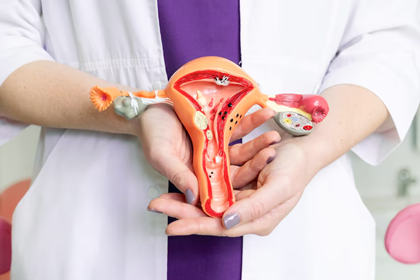A common issue that causes discomfort and impacts sexual health. While it is most often linked to hormonal changes, particularly during menopause, various other factors can also contribute to this condition.
Effects of Vaginal Dryness
Vaginal dryness can lead to discomfort in the vaginal and pelvic areas, often accompanied by symptoms such as burning, itching, soreness, and pain during sexual intercourse. Additionally, it can increase the risk of urinary tract infections (UTIs), cause light bleeding after intercourse, and can lead to a decrease interest in sexual activity. These symptoms may negatively affect overall quality of life and intimate relationships.
Causes of Vaginal Dryness
The primary cause is the decline in estrogen levels, which is commonly associated with menopause. However, other factors can also lead to reduced estrogen production and subsequent dryness. These include breastfeeding, cigarette smoking, excessive stress, childbirth, rigorous exercise, certain medications, and some cancer treatments. Additionally, practices such as douching and using certain creams or lotions in the vaginal area can worsen dryness and irritation.
Seeking Medical Help
While vaginal dryness is usually not a sign of a serious medical condition, medical advice is important if symptoms persist for more than a few days or if discomfort during sexual intercourse occurs. A medical evaluation may include examining the vaginal walls for lacerations or thinning, testing for harmful bacteria in vaginal discharge, and conducting hormone tests to assess menopausal status.
Treatment Options
Over-the-counter lubricants and moisturizing creams designed specifically for vaginal use can provide relief from dryness. These products help lubricate the vaginal area, reduce discomfort, and adjust the vagina's pH to lower the risk of UTIs. In some cases, doctors may recommend estrogen therapy to restore estrogen levels and alleviate symptoms. It is important to choose water-based lubricants free from perfumes, herbal extracts, or artificial colors to avoid further irritation.
Prevention Measures
Preventing vaginal dryness involves avoiding irritating products, a chemical known to cause dryness. While age-related or reproductive changes to the vagina cannot be entirely prevented, maintaining proper vaginal hygiene, and avoiding potential irritants can help reduce the risk of dryness.
If you experience persistent vaginal dryness, it’s crucial to consult a doctor for proper evaluation and personalized treatment recommendations. Effective management of vaginal dryness can significantly improve comfort, intimacy, and overall quality of life.

